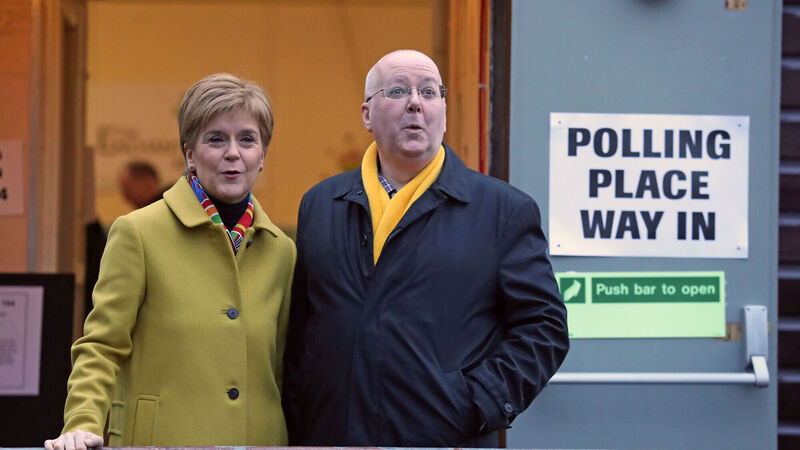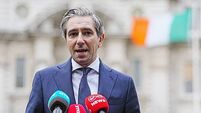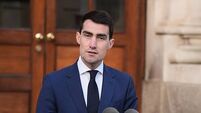Irish Examiner view: Scottish National Party hits the low road

Former SNP leader Nicola Sturgeon and CEO Peter Murrell, who is her husband. The prospects of Holyrood acting as a bellwether for the North have receded this week. Picture: Andrew Milligan/PA
















